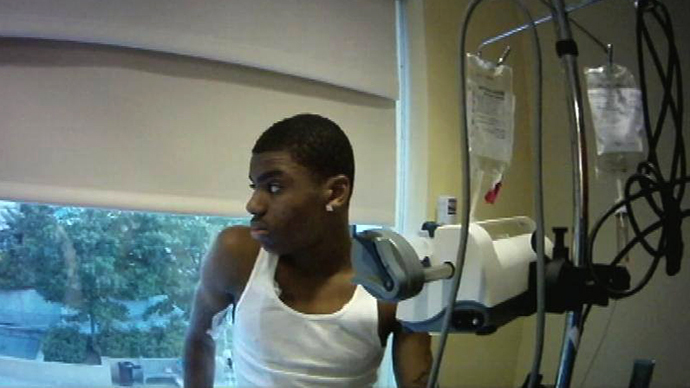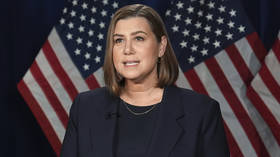Georgia teen denied life-saving heart transplant due to ‘non-compliance’

A Georgia teenager in dire need of a new heart was denied a transplant after doctors determined that his history of poor grades and prior issues with the law did not provide “evidence” that he would attend doctor’s appointments or take his medication.
Physicians told Anthony Stokes’ family that although he likely
has less than six months to live due to an enlarged heart
condition, the 15-year-old will not be placed on a transplant
list due to concerns that he would not attend necessary medical
appointments or take his medication.
“They said they don’t have any
evidence that he would take his medicine or that he would go to
his follow-ups,” Anthony’s mother, Melencia Hamilton, told
ABC affiliate WSB-TV.
Stokes is currently being treated at the Children’s Healthcare of
Atlanta at Egleston hospital and has been there since July 14.
“The non-compliance is
fabricating, because they don’t want to give him a heart,”
said Stokes’ mentor and family friend, Mack Major. “This is unacceptable because he must lose
his life because of a non-compliance.”
Civil rights organizations have taken note of Anthony Stokes’s
case, stating that an individual’s past should not impact the
quality of medical care that they receive.
“He’s been given a death
sentence because of a broad and vague excuse of
non-compliance,” said Christine Young Brown, president of
the Newton-Rockdale chapter of the Southern Christian Leadership
Conference (SCLC).
The seemingly vague determination that the teen is in
“non-compliance” seems
to be related to the hospital’s stringent guidelines for
individuals placed on life-saving transplant lists.
The hospital’s inability to cite specific reasons for its
decision has been a source of the family’s growing indignation.
The facility has so far only cited generic internal rules which
have disqualified Stokes from receiving a transplant.
Children’s Healthcare of Atlanta spokeswoman Patty Gregory said
in a statement, “The well-being
of our patients is always our first priority. We are continuing
to work with this family and looking at all options regarding
this patient's health care. We follow very specific criteria in
determining eligibility for a transplant of any kind.”
The current lack of donors for procedures such as heart
transplants means that hospitals follow strict guidelines as to
who can receive a life-saving organ. But the hospital’s
declaration has not deterred the teen’s family and loved ones
from pushing back on his behalf.
“We must save Anthony’s
life,” Major told CBS Atlanta. “We don’t have a lot of time to do it, but
it’s something that must be done.”













